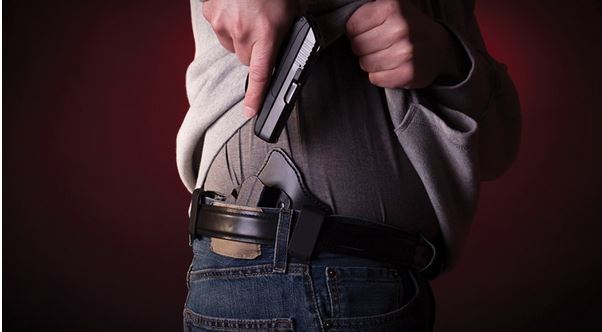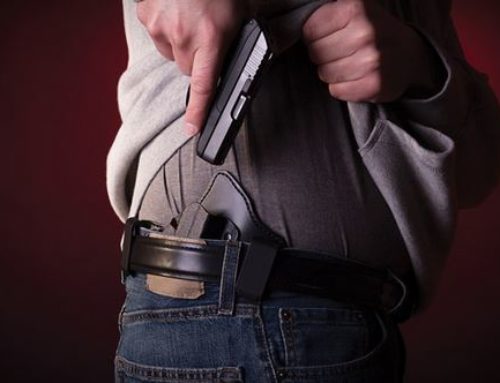Will a national concealed carry reciprocity law get passed in 2017?
by John McAdams – Wednesday, January 18, 2017
With Republicans in control of both chambers of Congress and Donald Trump in the White House, it’s quite possible that promises by gun rights groups to “go on the offensive” may bear fruit in the near future.
Rep. Richard Hudson (R-N.C.) introduced H.R. 38 — “The Concealed Carry Reciprocity Act of 2017” — on Jan. 3, which was the first day in session for the 115th Congress. In short, this bill would authorize people who have a valid concealed handgun license and who are not otherwise prohibited from owning a firearm to carry a concealed handgun in any state that permits concealed carry. However, they would still have to follow the rules and regulations for the state they are visiting when carrying a concealed handgun.
The way things stand now, law-abiding gun owners wishing to carry a concealed handgun in another state must first navigate a treacherous and complicated web of different state reciprocity agreements. Not only can successfully traversing this minefield be incredibly difficult, but even honest mistakes can be extremely costly.
Take the case of Shaneen Allen as an example. She was a law-abiding resident of Philadelphia who purchased a handgun and acquired valid Pennsylvania concealed carry license after being robbed.
Unaware that it was illegal to carry her handgun in neighboring New Jersey, she was pulled over for a minor traffic violation on the Atlantic City Expressway. When Allen told the police officer she was carrying a gun, she was arrested and faced felony charges and up to three years in prison before Gov. Chris Christie pardoned her.
The Concealed Carry Reciprocity Act of 2017 aims to prevent future incidents like that one. Advocates of the bill compare it to current regulations regarding driver’s licenses. For instance, a Texas driver’s license is recognized by all 49 other states. The same goes for marriage licenses. Why should a concealed handgun license be any different?
There are two more interesting provisions in this bill that are receiving a lot of attention from anti-gun groups, though.
The first is the fact that this bill appears to allow people to get a concealed carry license from any state (not just the state where they reside) and then carry a concealed handgun in any other state. This would permit residents of states like California and New York (where getting a concealed handgun license is difficult) to obtain a license from a state like Utah (which issues permits much more freely) and then legally carry in their home state.
The second provision states that a person who carries a concealed handgun is not subject to the prohibitions of Section 922(q) of the U.S. Code. Section 922(q) is better known as the “Gun-Free School Zones Act of 1990,” which prohibits people from carrying firearms in schools or school zones.
So, in one fell swoop, the Concealed Carry Reciprocity Act of 2017 would:
- enable law-abiding and properly licensed citizens to carry a concealed handgun in every state, territory and Washington, D.C.
- effectively neuter the strict laws regarding issuing handgun licenses in states like California
- eliminate “gun-free zones” in schools by allowing those with concealed carry licenses to carry there
Obviously, anti-gun groups are going to put up quite a fight against this bill. While the political conditions necessary for this bill to pass have never been as good as they are now, it still really remains to be seen how things will play out.
Anti-gun groups are already gearing up to fight The Concealed Carry Reciprocity Act of 2017 with everything they’ve got. Unless gun rights groups fight back just as hard, there’s a good chance the anti-gun groups will succeed in stopping or at least watering down the bill.






Leave A Comment
You must be logged in to post a comment.